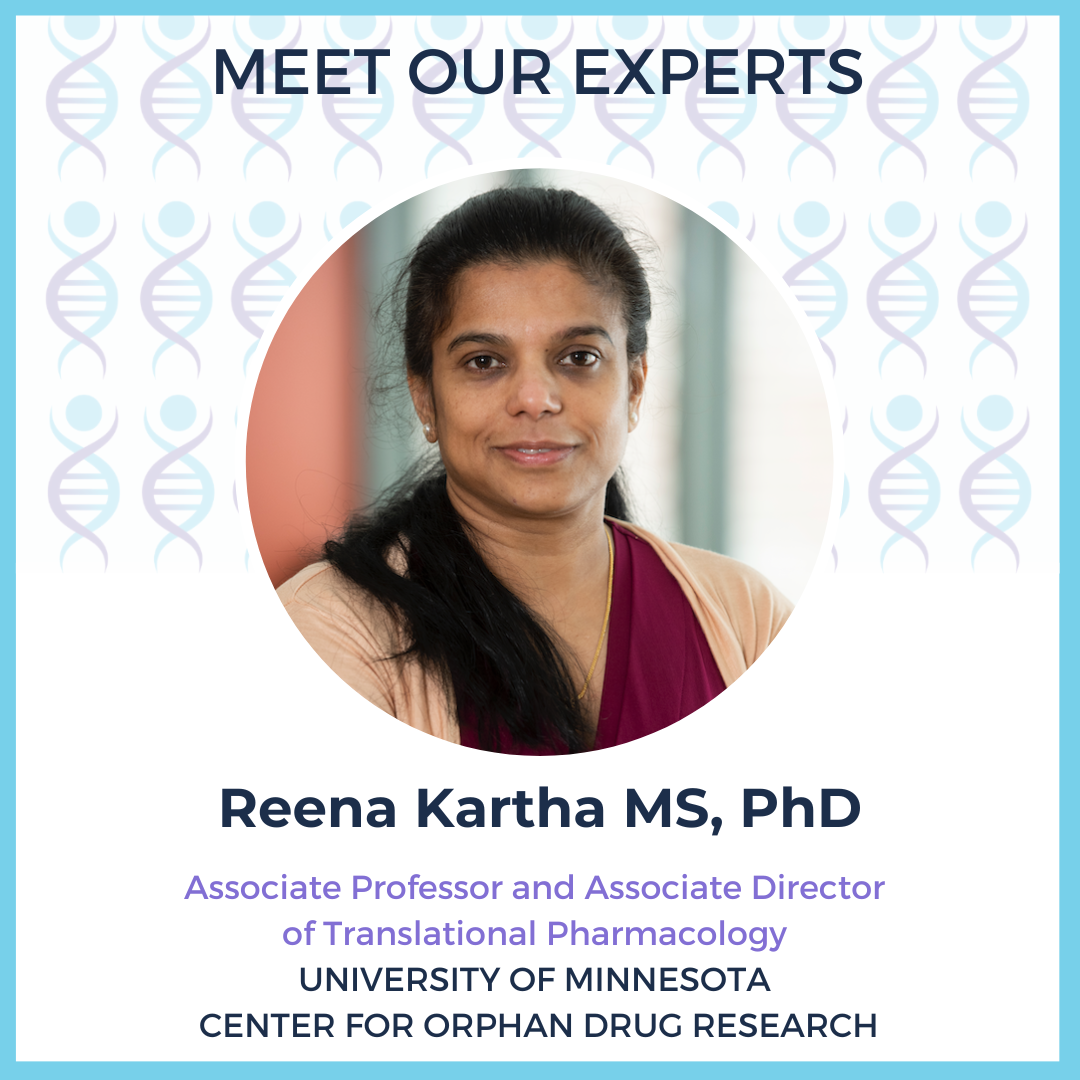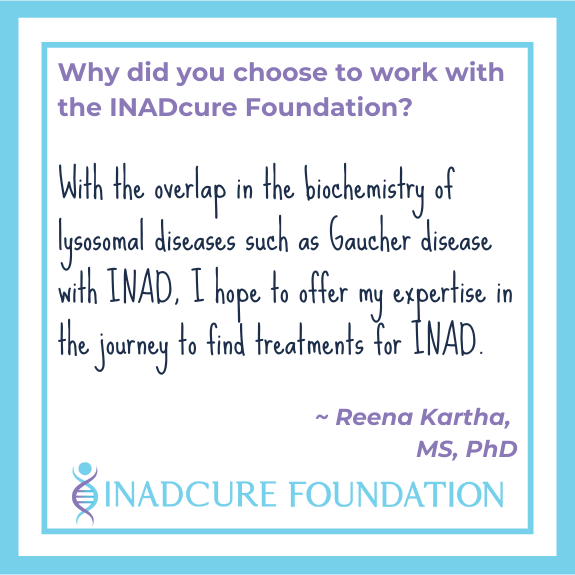
Associate Professor and Associate Director of Translational Pharmacology
University of Minnesota Center for Orphan Drug Research
LET’S MEET: Dr. Kartha
I am an Associate Professor and Associate Director of Translational Pharmacology at the University of Minnesota Center for Orphan Drug Research. I have a master’s in biotechnology and a Ph.D. in Cellular and Molecular Biology from the Indian Institute of Science, Bangalore.
My research focuses on identifying novel circulating biomarkers and developing new or repurposed therapies for rare inherited metabolic disorders. I mentor and supervise undergraduate, graduate, and pharmacy students conducting directed research in my lab.
As a rare disease researcher and educator, one of my proudest accomplishments is introducing a novel undergraduate seminar course titled “Rare Diseases: What it Takes to Be a Medical Orphan” to immerse students in this public health challenge so that they can think critically about innovative solutions. For this, I was recognized as a Rare Disease Difference Maker® in 2021.
I also serve as Director of Research programs for IndoUSrare, a US-based non-profit organization building collaborative bridges between the US and the Indian subcontinent to address the unmet needs of diverse patients and accelerate therapies for all individuals affected by rare diseases globally.
To make an impact through my research and by mentoring the upcoming generation.
My postdoctoral training project was on gene expression analysis in a rare skin cancer. This experience made me realize the challenges of working with rare diseases, and I decided to use my skills to make the best of the clinical samples coming in for research. Subsequently, I switched to conducting pharmacological research, which brought me to adrenoleukodystrophy, a fascinating disease that is still not fully understood and with no effective curative treatments. I have been working in this area for the last 15 years.
My research focuses on two other rare diseases – Gaucher disease and Adrenoleukodystrophy, where we are repurposing medications to target underlying oxidative stress, inflammation, and mitochondrial dysfunction. In addition, we are also involved in biomarker discovery studies in these conditions. Working with patients on clinical studies and understanding what matters most to them has been rewarding.
With the overlap in the biochemistry of lysosomal diseases such as Gaucher disease with INAD, I hope to offer my expertise in the journey to find treatments for INAD.
Advances in precision medicine tailoring diagnosis and treatment for patients.
My favorite part of my work is training the next generation of scientists, healthcare professionals, and leaders.
Play pickleball, kayak, and spend time outdoors with my family and puppy.
Good weather
Educated.
Communicate with animals!

